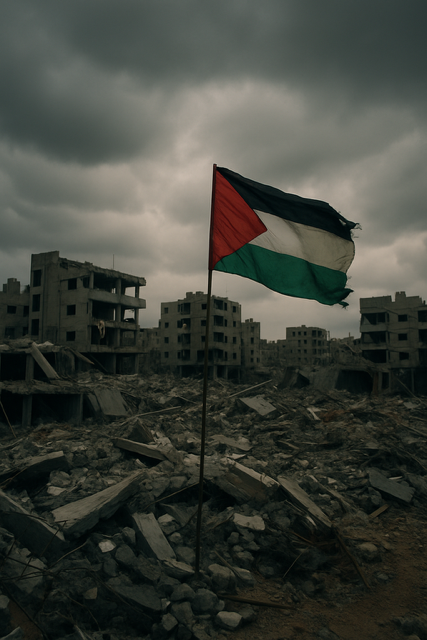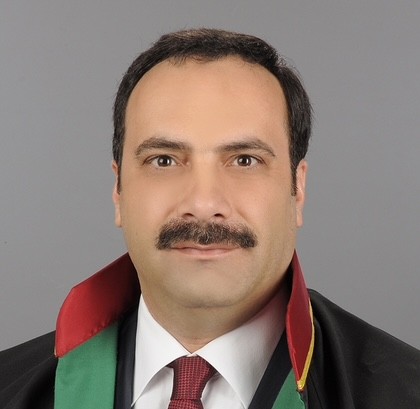Since the foundation of the State of Israel in 1948, the Israeli-Palestinian conflict has persisted as one of the most entrenched and multifaceted crises in modern political history. Rooted in contested territory, national identity, and ideological hegemony, the conflict has become a symbol of regional instability and global geopolitical struggle. This article combines international relations theory with socio-political critique to examine the conflict’s regional and global dimensions, particularly through a realist lens. Simultaneously, it addresses the human and psychological cost of war, drawing on philosophical insights about power and thought.
Realism, Alliances, and Strategic Interests
Realism, one of the dominant theories of international relations, emphasises state security, military strength, and the pursuit of power in an anarchic global system. Israel, in its formation and consolidation, adopted a realist approach to ensure survival in a hostile region. By aligning with powerful allies, particularly the United States, Israel not only secured military and economic aid but also established a formidable regional presence. This alignment mirrored the broader Cold War dynamics, with Arab states seeking support from the Soviet Union.
The realist paradigm justifies Israel’s proactive security policies and military interventions as necessary for state preservation. While Israel emphasises security in a volatile region, this pursuit often clashes with international human rights norms. This emphasis on security has also contributed to the prolonged subjugation of Palestinian territories and populations, creating cycles of resistance and repression. The rise of the Intifada, viewed as both a nationalist and anti-colonial movement, was a reaction to the perceived failures of diplomatic negotiation and the asymmetric power dynamics in the region.
The Question of Jerusalem and Shifting Regional Loyalties
Jerusalem stands at the epicentre of the conflict, representing not just a territorial dispute but a clash of religious, national, and historical narratives. Since Israel’s annexation of East Jerusalem during the 1967 Six-Day War, the city has become a focal point for global religious and political tensions. Palestinians, facing displacement and poverty, have seen their claims to Jerusalem suppressed under the weight of military dominance and international inertia.
Arab unity in support of Palestine peaked during the early decades of the conflict, particularly through the Arab League. Yet, repeated military failures and the changing strategic interests of Arab states led to normalisation agreements with Israel, such as those by Egypt (1979), Jordan (1994), and more recently the UAE and Bahrain (2020). These shifts reflect the realist principle of balancing – weaker states aligning with stronger powers to secure their interests.
The diminishing support from traditional Arab allies has left Palestinians increasingly isolated. Although leaders like Yasser Arafat sought backing from the Soviet bloc and fostered global solidarity movements, internal fragmentation and external pressures have hindered the realisation of Palestinian statehood.

Turkey, the U.S., and the Discourse-Practice Gap
Turkey’s response to the Israeli-Palestinian conflict illustrates a complex balance between ideological commitment and pragmatic statecraft. While the Turkish government has consistently voiced strong rhetorical support for the Palestinian cause and condemned Israeli actions, its actions have not always aligned with its discourse. Public pressure within Turkey, particularly among its conservative and religious segments, strongly favours active support for Palestine. However, in practice, Turkey has maintained significant economic ties with Israel and continued diplomatic relations.
This duality reflects a realist policy orientation. Turkey seeks to safeguard its economic interests, particularly in trade and energy, while also navigating its strategic relationships with Western allies, including NATO and the United States. The result is a carefully calibrated foreign policy that avoids full rupture with Israel despite domestic outrage and religious solidarity with Palestinians. This pragmatic balancing act has drawn criticism for failing to match bold political rhetoric with substantive action in support of Palestine.
The U.S.-Israel alliance is similarly complex. Post-1967, American support for Israel intensified, partly as a counterbalance to Soviet influence and partly to safeguard economic interests in the Middle East. Yet this support has come with international criticism, especially in light of human rights concerns and the growing humanitarian crisis in Gaza and the West Bank.
Under President Donald Trump, American policy became more aggressively one-sided. The recognition of Jerusalem as Israel’s capital in 2017, the relocation of the U.S. embassy, and the Abraham Accords that sidelined Palestinian leadership all contributed to deepening instability. These moves, while bolstering Israel’s geopolitical position, further alienated the Palestinian cause and reflected a shift from veiled neutrality to overt alignment. Trump’s policies heightened uncertainty and reinforced the perception of international bias, contributing to radicalisation and hopelessness across occupied territories.
Violence, Resistance, and the Collapse of Human Rights Frameworks
The most recent escalations in Gaza have resulted in alarming civilian casualties, including women and children, prompting widespread condemnation from human rights organisations. Nevertheless, global powers have largely failed to take decisive action. Despite pressure from the United Nations and advocacy by humanitarian bodies, ceasefires remain temporary, and structural injustices persist.
This pattern underscores the failure of international institutions to enforce accountability. The normalisation of violence, especially when perpetrated by powerful states or allies, erodes the credibility of the human rights regime and encourages impunity. Political strategy drowns out the voices of the oppressed and reduces peace to a mere tool.
The Erosion of Political Consciousness and the Hope for Coexistence
While realism explains much of state behaviour in terms of power and security, it often neglects the human cost of such policies. Philosophical critiques, such as Aristotle’s assertion that “a tyrant must keep his people poor so they cannot think,” illuminate the socio-psychological dimensions of war. In Gaza, East Jerusalem, and beyond, the perpetuation of poverty serves as a tool of control. Struggling populations are rendered politically inert, preoccupied with survival rather than resistance or reform.
War, in this framework, becomes not just an instrument of territorial gain but a means of mass distraction and dehumanisation. By destroying infrastructure, fragmenting communities, and breeding fear, authoritarian regimes and occupying powers alike suppress political consciousness.
The deeper tragedy of the conflict lies not only in physical destruction but also in the erosion of critical thought. As global powers prioritise strategic interests over humanitarian concerns, they enable the continuation of violence and injustice. The media, often complicit in framing narratives, perpetuates one-dimensional portrayals that obscure the lived experiences of those affected.
Despite the dominance of realist logic, there is a growing intellectual and political movement advocating for a one-state solution. This rationalist alternative emphasises coexistence, equality, and mutual recognition over segregation and superiority. Public intellectuals such as Edward Said and political thinkers like Virginia Tilley have championed this approach, arguing that two-state negotiations have failed to produce justice or stability. In contrast to fragmented sovereignty and ethno-nationalist divisions, the one-state model envisions a binational, democratic state where Jews and Palestinians enjoy equal rights. While such a solution faces immense political obstacles, it remains a necessary counterpoint to the fatalism of perpetual war. Proponents argue that peace cannot be imposed through power but must be built through shared humanity and historical reckoning.
This vision challenges the status quo upheld by both Israeli and Palestinian political elites, suggesting that only a radical reimagining of statehood and identity can break the cycle of violence. While such a solution faces immense political obstacles, it remains a necessary counterpoint to the fatalism of perpetual war.
Conclusion
The Israeli-Palestinian conflict remains a stark illustration of the limitations of realist political theory when divorced from ethical reflection. Israel’s regional dominance, achieved through strategic alliances and military strength, has come at the cost of long-term peace and justice. Palestinians, meanwhile, endure dispossession, poverty, and political marginalisation under an international system that has failed to uphold their rights.
Under Trump-era U.S. policies, international ambiguity gave way to unambiguous alignment with Israel, further eroding the potential for a balanced diplomatic resolution. The world’s silence in the face of ongoing humanitarian crises in Gaza, despite documented atrocities and civilian deaths, raises serious questions about the future of international law and collective moral responsibility.
Yet beyond statistics and treaties lies a more profound struggle—the battle for thought, memory, and dignity. If war numbs the mind and silences the spirit, then resistance must begin with remembering, thinking, and speaking. As the flames of Jerusalem illuminate both destruction and awakening, they compel the world to confront not just a political conflict, but a moral crisis.
References
Williams, M.C. (2016). Realism and the Politics of Security.
Brown, N. (2007). The PLO and Realism in Political Discourse.
Thrall, N. (2017). The Only Language They Understand.
Aridan, N. (2019). The Israeli Lobby in US Foreign Policy.
Chomsky, N. (2016). Who Rules the World?
Achcar, G. (2016). The People Want.
Reiter, Y. (2013). Jerusalem and Its Role in Global Conflicts.
Abou-El-Fadl, R. (2012). The Arab Uprisings and Jerusalem.
Beck, M. (2015). Targeted Killings in the Israeli-Palestinian Conflict.
Morgenthau, H. (1993). Politics Among Nations.
Walt, S. & Mearsheimer, J. (2006). The Israel Lobby.
Radjy, A. (2021). On Edward Said and the Intifada.
Sayigh, Y. (2015). Hamas and the Politics of Resistance.
Assi, S. (2021). Resolving Jerusalem: A Shared Holy City.
Tilley, V. (Ed.). (2005). The One-State Solution: A Breakthrough for Peace in the Israeli-Palestinian Deadlock. University of Michigan Press.

